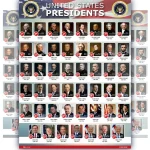Legislative Overview – February 17, 2025
HAPPY PRESIDENT’S DAY!!!
9 Senate Bills Passed and awaiting House Response & 1 House Bill Passed: SB2100, SB2213, SB2262, SB2325, SB2348, SB2358, SB2368, & SB2385 + SCR4018. Those that failed included: SB2131, SB2222, SB2314, SB2337, SB2361, & SB2389. No Bills Withdrawn.
22 House Bills Passed and awaiting Senate Response: HB1009, HB1014, HB1017, HB1022, HB1023, HB1105, HB1183, HB1225, HB1252, HB1255, HB1269, HB1328, HB1338, HB1393, HB1423, HB1442, HB1447, HB1474, HB1545, & HB1562 + HCR3016 & HCR3019. Those that failed include: HB1141, HB1256, HB1287, HB1301, HB1306, HB1333, HB1370, HB1443, HB1463, HB1544, HB1576, HB1587, HB1593 & HCR3026. No Bills Withdrawn.
The Bills we are tracking regarding the business world include:
SB2131: https://ndlegis.gov/assembly/69-2025/regular/documents/25-0989-01000.pdf. ~ FAILED
This Bill proposes a funding distribution framework for workforce training centers in North Dakota. It allocates 60% of the appropriated funds equally among the centers, 20% based on the average training hours provided over the past four fiscal years, and 20% based on the average number of unduplicated participants served in the same period. The bill affects workforce training centers, career and technical education programs, and the individuals they serve. It does not specify provisions for individual employers to directly access the appropriated funds. The funds are distributed to workforce training centers based on specific criteria, such as training hours and participant numbers. However, employers may indirectly benefit by partnering with these centers to develop customized training programs for their workforce.
SB2222: https://ndlegis.gov/assembly/69-2025/regular/documents/25-0815-01000.pdf. ~ FAILED
This Bill establishes new regulations for the certification and sale of assistance animals in North Dakota. It defines documentation requirements for healthcare providers, including assessment and verification procedures. The bill mandates that landlords can request supporting documentation for tenants requesting assistance animals in rental properties. It also introduces penalties for false representation of service animal needs and requires sellers to provide written disclosures about assistance animals. It affects property owners by allowing them to request documentation from tenants who need assistance animals in rental properties. It helps landlords verify legitimate requests while protecting them from fraudulent claims. The bill also establishes penalties for tenants who falsely represent their need for an assistance animal, providing property owners with legal recourse. These changes aim to balance tenant rights with property management concerns.
SB2314: https://ndlegis.gov/assembly/69-2025/regular/documents/25-0978-02000.pdf. ~ FAILED
This Bill prohibits state, county, and city entities from entering into development agreements with individuals or governments identified as foreign adversaries under federal regulations or sanctions lists. Exceptions apply to foreign entities with long-standing business presence and federal security approvals. Violations could result in felony charges and disqualification from holding public office. This bill may impact businesses involved in development projects by restricting certain foreign investments and partnerships. Landowners may need to conduct additional due diligence to ensure compliance with the new regulations. Exceptions exist for entities with an established business presence and federal security approvals.
SB2100: https://ndlegis.gov/assembly/69-2025/regular/documents/25-0331-01000.pdf
This Bill proposes amendments to North Dakota’s emergency medical services (EMS) training regulations. It establishes standards for EMS personnel certification, licensure, and quality review, allowing instructors to provide entry-level training without requiring an EMS training institute. The bill makes licensing of training institutions optional and introduces penalties for misrepresenting certification status. It also protects quality review data from legal discovery. The bill primarily impacts EMS personnel, instructors, and training institutions.
HB1239: https://ndlegis.gov/assembly/69-2025/regular/documents/25-0518-02000.pdf ~ FAILED
This Bill establishes legal protections for digital asset mining operations in North Dakota. It prohibits local governments from enacting zoning restrictions that specifically target digital asset mining businesses and exempts certain blockchain-related activities from money transmitter licensing requirements. The bill could impact businesses involved in cryptocurrency mining, software development, and blockchain operations by providing regulatory clarity and legal protections.
HB1393: https://ndlegis.gov/assembly/69-2025/regular/documents/25-1073-02000.pdf
This Bill proposes regulating earned wage access providers (like pay day loans) in North Dakota, requiring them to obtain a state license, maintain financial responsibility, and comply with consumer protection measures. Earned wage access services allow employees to access a portion of their earned but unpaid wages before their regular payday. The bill defines key terms, establishes oversight by the Department of Financial Institutions, and mandates compliance with financial security requirements, including a $50,000 surety bond.
If passed, this bill would impact earned wage access providers, employers offering wage advance programs, and employees who use these services. Providers would face stricter licensing and regulatory compliance, while employers integrating these services may need to work within new state guidelines. For consumers, the bill could provide greater financial transparency and security, ensuring that wage advances operate under clear legal protections.
HB1447: https://ndlegis.gov/assembly/69-2025/regular/documents/25-1011-02000.pdf
This Bill proposes the creation of a new chapter in the North Dakota Century Code to regulate virtual currency kiosks. The bill outlines requirements and standards for businesses operating these kiosks, which allow customers to buy or sell digital assets like cryptocurrency. Affected stakeholders include kiosk operators, financial institutions, and consumers using these services. The bill may introduce compliance measures that impact business operations and regulatory oversight.
HB1474: https://ndlegis.gov/assembly/69-2025/regular/documents/25-1184-02000.pdf
This Bill directs Legislative Management to study potential property tax reform for residential properties in North Dakota. The study will explore limiting taxable valuation increases and replacing the current ad valorem property tax system with a price-per-square-foot taxation method. It will assess the impact on taxpayers and local governments, review existing property tax procedures, and analyze potential challenges in transitioning to a new system. If enacted, this bill could impact homeowners, real estate professionals, local taxing districts, and municipal governments by reshaping how residential property taxes are calculated. The findings could lead to future legislation aimed at stabilizing property taxes or implementing a new taxation structure.
~ Although a delegation of Canadian legislators attended floor sessions today, their presence did not impact any voting outcomes. They were simply visitors/observers. This type of exchange between North Dakota and Canada has been ongoing since the mid-1990s. Maintaining a current understanding of our northern neighbors is neighborly and good for business. As business owners ourselves, we at NDBU can appreciate the value of this cooperation. Instead of ranking each other, we should focus on elevating each entire industry, which benefits everyone involved. It’s crucial to stay informed about how our laws are drafted and voted on, and to observe how closely our legislators align with Republican or Democratic platforms that they campaigned on. Those who track these votes are often surprised by the results, and you might likely be as well. Staying engaged is the best way to promote transparency, so let’s all make an effort to do so. Remember, a rising tide floats all boats!
Jan Wangler, Executive Director 


